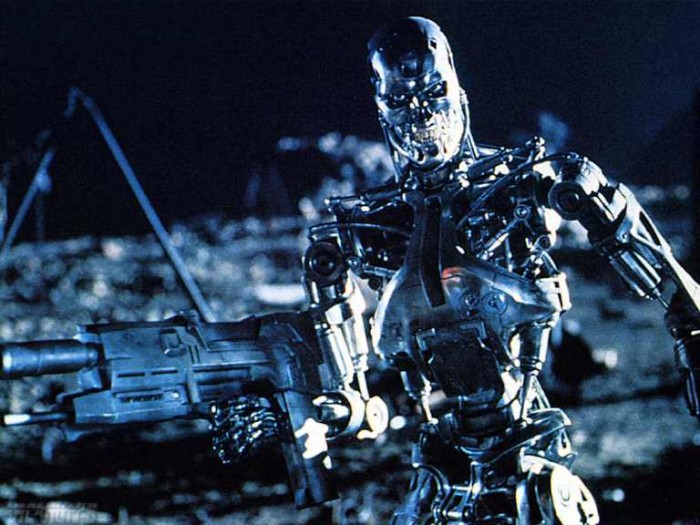
Article by David Rosales
As technology progresses, machines are increasingly able to replace humans when it comes to menial jobs such as those that take place inside factories, where often repetitive movements are better done by untiring mechanical arms that do not tire. But the progress of machine work is not limited to mere rote, and now includes not only machines that can make calculations many times faster than any human being, but also any other function that a programmer can reduce to a set of instructions in an algorithm. This spells bad news for almost everyone, even those who work high-level jobs: once computer scientists and mathematicians decode your decision process and reduce it to an algorithm, you are done.
Many think that the last bastion for human endeavor in the future, then, will be the arts, since a machine may be faster, more precise and more enduring than any human being, but it may never reflect the feelings that man possesses. There is this intuition, this unconscious level at which our kind operates that we do not finish understanding. This precisely is that nebulous area which Immanuel Kant defined as particularly problematic since we are not equipped to produce answers to questions which our very nature seems to insist on pushing questions for.
While I am in agreement with such a concept, there is a considerable gap with respect to how the average citizen seems to understand this. The issue is not whether or not machines may replace creative human activity in the creation of art. In music specifically, programs have already been written which can compose scores on the spot that fill out the aesthetic requirements of a Mozart symphony (Editor’s note: These have, in fact, been around for decades. The earliest example I can think of is CPU Bach, released in 1994 for the 3DO). In fact, such a program is not limited to a particular style and has been written such that when given a collection of pieces, the program will determine the style to be used by the approximate differences between the pieces given. This spells very bad news for all those brainless clone bands out there who have no vision between “the riff” or “the feeling”.
What are the limitations of this kind of style-replicating program? Perhaps the most important is that even though it might be possible to redirect it so that it produces a new style if given a seed for random variation, it cannot actually replicate human originality, at least in the sense that humans create art from the unique way in which they perceive the world and manifest it through music and particular expression. The sort of results arising from this human originality may be “objectively” indistinguishable from what the machine produces given X reference styles and a random factor, but there will be no way for the machine to supplant the former, at least until it can also emulate a great deal of the higher brain functions humans use for creativity, which is admittedly a far more difficult task.
So, in a future (present?) world where computer programs produce commercial jingles and pop tunes for big garbage music companies, all those mediocre soundtrack composers will be out of a job. Furthermore, modernist idiocy would be quickly replaced by machines exhausting all the possibilities of that most unnatural “music”. This result is quite interesting, because in trying to get rid of tradition, modernists ran away from what keeps music in touch with our humanity. In the end, the advent of music made by artificial intelligence will not represent a stamping out of human creativity, but an exalting of those who survive the onslaught. I for one hail our machine overlords.
Tags: art, art appreciation, artificial intelligence, machines


Not all of the mediocre artists would be out of a job. There’d still be a market for “artisanal, hand-crafted” shitty pop music. The hipsters of tomorrow will love it.
“It’s organic, man. It’s genuine. None of that ‘chine garbage”.
Hahahahaha, you are right
Gabe, you might be a bigger nerd than I am. Did not expect a 3DO reference. I played that console for the first time this year.
As humanity gets dumber and dumber then comes the rise of the machines.
“This spells bad news for almost everyone, even those who work high-level jobs: once computer scientists and mathematicians decode your decision process and reduce it to an algorithm, you are done.”
The efficiency gains will make everyone better off for less work.
“programs have already been written which can compose scores on the spot that fill out the aesthetic requirements of a Mozart symphony”
I would really like to know about these.
Related.. Humans Need Not Apply: https://www.youtube.com/watch?v=7Pq-S557XQU
I’ve always thought it interesting that a sufficiently powerful computer could compute all possible combinations of the bits that make up a CD (or text, or video), in essence creating all art that ever existed and ever will exist. The only problem is that there would be so much useless information that it would be impossible to sift through it all and find the works of merit among the junk.
Argentinian author Louis Borges wrote an interesting short story on the idea, albeit without computers:
https://libraryofbabel.info/Borges/libraryofbabel.pdf